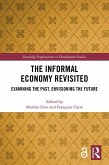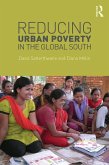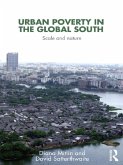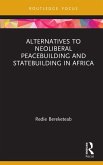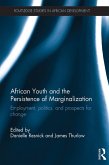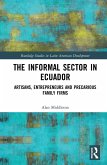Contributors to the volume bridge a range of disciplinary perspectives including anthropology, development economics, law, political science, social policy, sociology, statistics, urban planning and design. The Informal Economy Revisited also focuses on specific groups of informal workers, including home-based workers, street vendors and waste pickers, to provide a grounded insight into disciplinary debates. Ultimately, the book calls for a paradigm shift in how the informal economy is perceived to reflect the realities of informal work in the Global South, as well as the informal practices of the state and capital, not just labour.
The Informal Economy Revisited is the culmination of 20 years of pioneering work by WIEGO (Women in Informal Employment: Globalizing and Organizing), a global network of researchers, development practitioners and organisations of informal workers in 90 countries. Researchers, practitioners, policy-makers and advocates will all find this book an invaluable guide to the significance and complexities of the informal economy, and its role in today's globalised economy.
The Open Access version of this book, available at
https://www.taylorfrancis.com/books/e/9780429200724, has been made available under a Creative Commons Attribution-Non Commercial-No Derivatives 4.0 license
Dieser Download kann aus rechtlichen Gründen nur mit Rechnungsadresse in A, B, BG, CY, CZ, D, DK, EW, E, FIN, F, GR, HR, H, IRL, I, LT, L, LR, M, NL, PL, P, R, S, SLO, SK ausgeliefert werden.
"For far too long, workers in the informal economy have been ignored, undercounted, and underappreciated. Yet in many countries, most of the economic activity occurs outside of the formal economy, and informal workers produce essential goods and services -- from people doing piecework at the beginning of the garment supply chain, to vendors of street food, to urban recyclers, to nannies and housekeepers. This volume offers new ways to conceptualize informality, making visible the many dimensions of the informal economy while drawing on perspectives from across the social sectors. It is essential reading for anyone interested in global development, labor economics, or women's economic empowerment, and helps us progress toward the goal of dignified work for all."-Ruth Levine, CEO, IDInsight
"The informal economy continues to be a highly persistent and ubiquitous phenomenon in several developing countries in spite of rapid economic development in many parts of the Global South. The global network Women in Informal Employment: Globalizing and Organizing (WIEGO) has played a leading role over two decades in scholarship, policy analysis and advocacy in improving the livelihoods of workers in the informal economy. In this important book, edited by Martha Chen and Françoise Carré, WIEGO has brought together leading scholars from across the social sciences to contribute to a rich understanding of the informal economy from different disciplinary perspectives. At a critical juncture in the world economy, when many informal livelihoods are being lost to the pandemic, the book will be compelling reading to academics, policy makers and practitioners."- Kunal Sen, Director, UNU-WIDER and Professor of Development Economics, University of Manchester, UK
"This comprehensive and up-to-date book, with contributions from a wide range of disciplines, is essential reading for everyone interested in work, employment and development. It demonstrates that it is not through the wage that most workers in the world relate to capital and to the state, but through a variety of forms of self-employment, own account work, and work as contributing family members. It covers innovations, such as the new status category in labour statistics of 'dependent contractor', which captures more accurately the situation of the majority of outworkers, home-based workers, and 'gig' workers. It debunks myths, such as that the informal economy does not pay tax. It argues that bypassing rules and regulations is not unique to the informal economy but is also characteristic of businesses in the formal economy. It shows that informal workers can make gains through organising and that social protection and labour standards can be designed in ways appropriate for securing justice for informal workers. It sets out a compelling case for a paradigm shift in how the informal economy is understood, and for 'decolonising' policies and laws for the informal economy." - Diane Elson, Emeritus Professor, University of Essex, UK. Member of UN Committee for Development Policy.
"A masterful overview of how research on and policies for the informal economy have evolved over the last fifty years. Drawing on multi-disciplinary approaches and providing multi country evidence this book documents comprehensively as well as critically a cautiously hopeful view of the struggle for recognition and appreciation of informal economies in development policies. A must read for both scholars and practitioners who want to envision an alternative approach to mainstream thinking regarding how to improve the quality of life of the vast majority of the labour force in an increasingly unpredictable world." - Bish Sanyal, Ford International Professor of Urban Development & Planning and Director, Spurs/Humphrey program, Massachusetts Institute of Technology.



